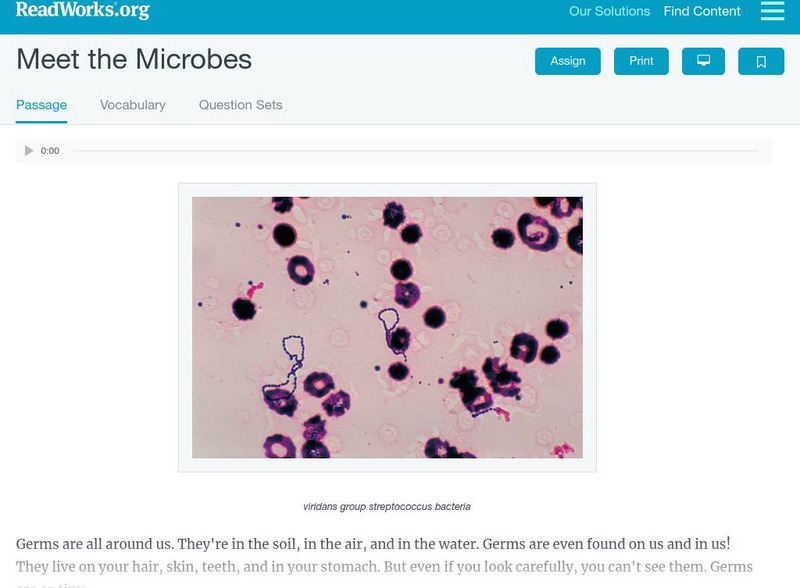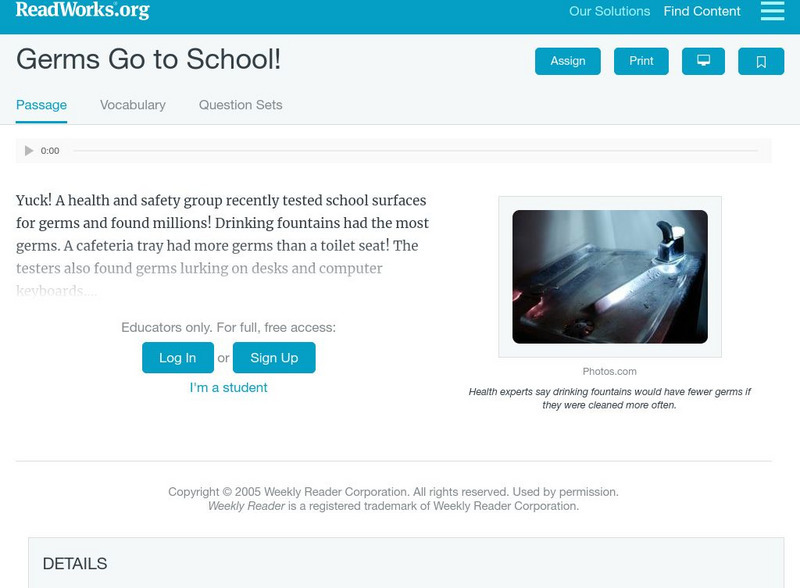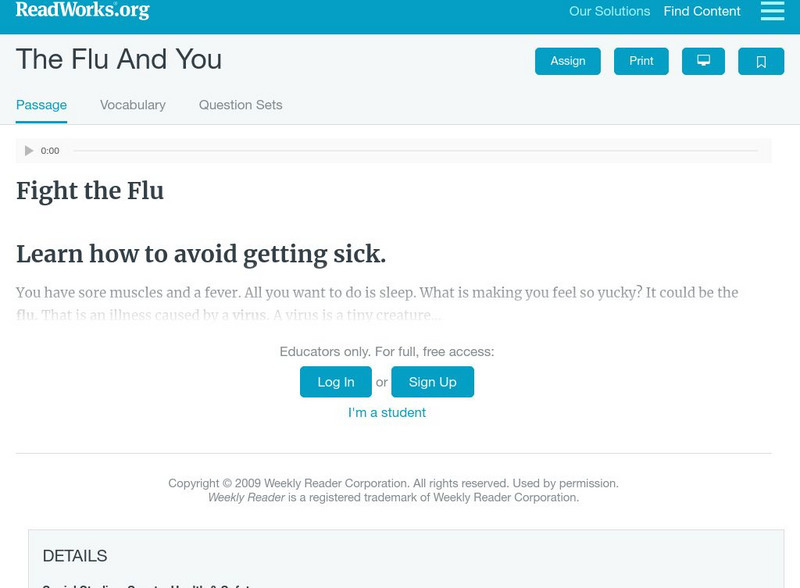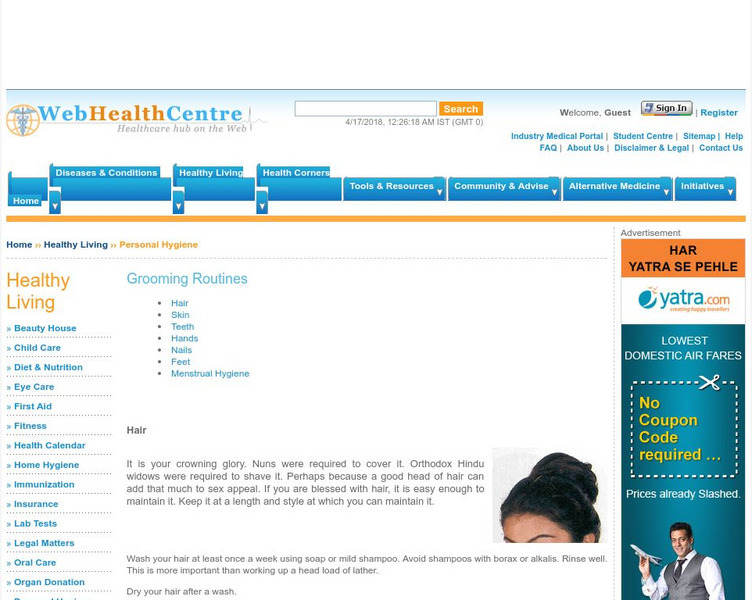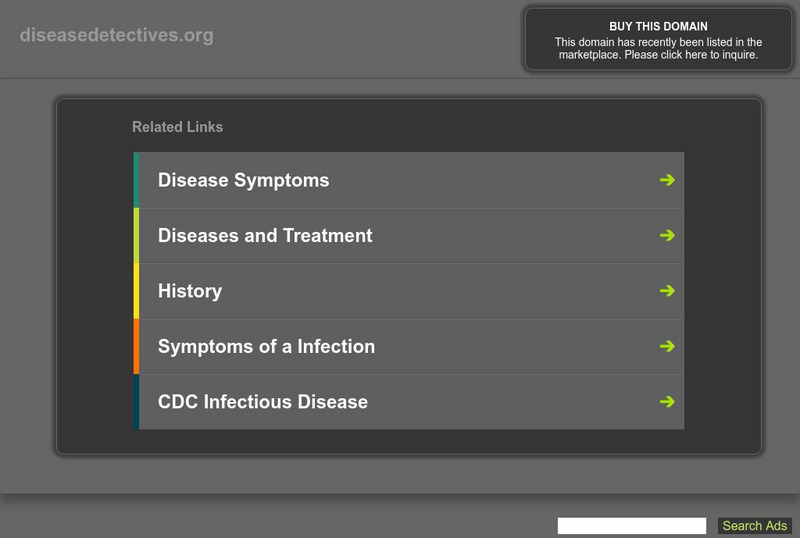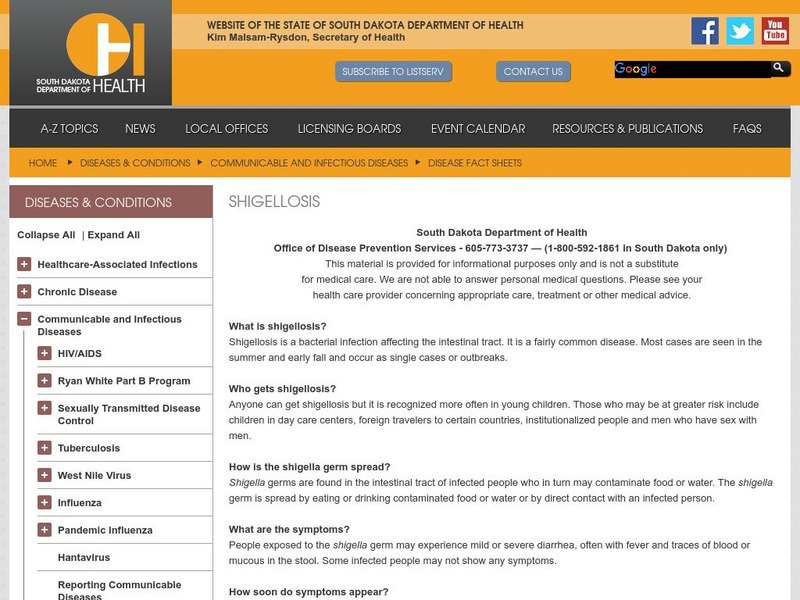Hi, what do you want to do?
Curated OER
Kids Health: Why Should I Care About Germs
Feeling stuffy? Running a fever? Well, read through this article and learn about the different types of germs and what you can do to prevent them. Don't miss the link that includes articles to similar sites.
Curated OER
Kids Health: Impetigo
This site from KidsHealth.org answers the question of what is impetigo on a kids level. The information is easy to understand, and it contains links throughout for additional information. Also includes facts on "How do I know if I have...
Curated OER
Kids Health: What Are Germs? (Spanish)
A friendly web site that gives good explanations of what germs are and what they do. You can learn how to protect yourself from them here as well.
Read Works
Read Works: Meet the Microbes
[Free Registration/Login Required] An informational text about different types of microbes including: viruses, bacteria, fungi, and protozoa. A question sheet is available to help students build skills in reading comprehension.
Read Works
Read Works: Germs Go to School
[Free Registration/Login Required] An informational text about harmful germs found on surfaces in schools. A question sheet is available to help students build skills in reading comprehension.
Read Works
Read Works: The Flu and You
[Free Registration/Login Required] An informational text about how to avoid getting the flu. A question sheet is available to help students build skills in reading comprehension.
CK-12 Foundation
Ck 12: Life Science: Pathogens
[Free Registration/Login may be required to access all resource tools.] Has this ever happened to you? A student sitting next to you in class has a cold. The other student is coughing and sneezing, but you feel fine. Two days later, you...
Centers for Disease Control and Prevention
Centers for Disease Control: Bam! Your Body: The Buzz on Scuzz
Information on the role that hands play in the spread of germs and disease and how hand washing, if done properly, can keep you safe.
Other
Web Health centre.com: Personal Hygiene
This is a great site explaining how to properly groom yourself. It includes instructions for teeth, hair, skin, hands, nails, and menstrual hygiene.
Centers for Disease Control and Prevention
Centers for Disease Control: Bam! Body and Mind: Lurking in the Locker Room
Explore a boys' or a girls' locker room to see where bacteria and fungi are commonly found, and learn how to protect oneself.
Other
Disease Detectives: Microbe Gallery
Learn in-depth details about microbes that cause disease: what is it, how to avoid it, the symptoms, and how it causes infections.
CK-12 Foundation
Ck 12: Life Science: 11.53 Pathogen
Understand how pathogens cause infections in humans.
National Institutes of Health
National Institute of Health: Tuberculosis
The National Institute of Health gives the basics about the disease tuberculosis.
Other
Skin: Online Word Search Puzzle
Find words associated with skin (like scab, scar, germs, and senses) in this word search. When finished, rescramble the letters and play again.
Ducksters
Ducksters: Science for Kids: Bacteria and Germs
Kids learn about the science of bacteria and germs. Small invisible single cell organisms.
Other
South Dakota Dept. Of Health: Shigellosis
What is it? Who gets it? How is it spread? What are the symptoms? Answers to these and many more questions reagarding shigellosis.
ClassFlow
Class Flow: Germs
[Free Registration/Login Required] Students will use this flipchart to identify proper ways to prevent germ spreading.
Other
Schools History: Louis Pasteur
A brief discussion of Pasteur's theory that germs in the air were the cause of disease rather than the result of disease.
Other
State of New Jersey Dept. Of Health: Shigellosis [Pdf]
Everything you need to know about shigellosis from causes to treatment and prevention. Very informative.
Other
Disease Detectives: Microbe Dance
Interactive game in which learners identify one of four germs that cause disease, decide which method to use to treat the disease, then decide the best way to avoid the disease. If you win, get ready to do the microbe dance.
HotChalk
Hot Chalk: Lesson Plans Page: Glitter Germs
This lesson plan is designed to give young young scholars a concrete demonstration as to why they should wash their hands with soap and warm water so they will understand that germs are smaller than the eye can see.
Other
Let's Find the Germs!
Game that lets you locate germs that might be commonly found on your hand. Appropriate for ages 9 and above. Includes symptoms and tips for prevention.








